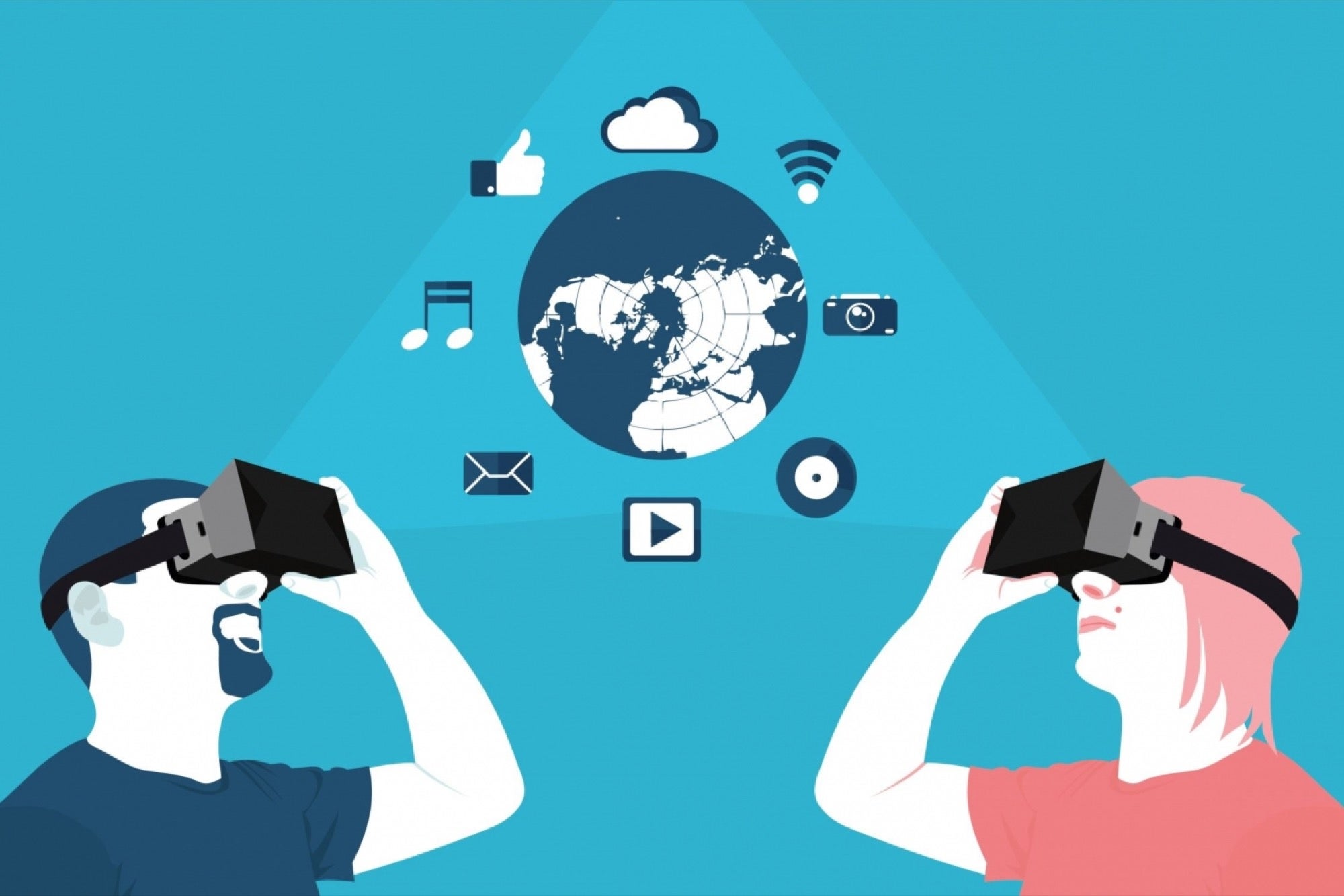How Augmented Reality is Being Implemented in the Real World From advertisers to builders Augmented reality is being used to give consumer a 360 degree view of the products to the consumers
Opinions expressed by Entrepreneur contributors are their own.
You're reading Entrepreneur India, an international franchise of Entrepreneur Media.

Augmented Reality (AR) is the imposing of digitally generated images into a viewer's real-world surroundings. Unlike Virtual Reality, which creates a completely artificial environment, AR uses the existing environment and overlays it with new information. Augmented reality apps are usually written using special 3D programs which allow developers to superimpose animation in the computer program, to an AR "marker" in the real world. It is now popularly being used by advertisers to create 3D renders of products, such as cars, the inside of buildings, and machinery. This provides consumers with a 360-degree product view.
The term 'Augmented Reality' was coined by Boeing researcher Thomas Caudell in 1990, to explain how head-mounted displays of electricians worked during the assembling of complicated wiring. Since then, the technology has been used in CAD programs for aircraft assembly, architecture, digital advertising, simulation, translation, military, and various medical procedures.
Tech giant Google, unveiled Google Glass in 2013, propelling AR to a more wearable interface - glasses. It works by projecting on the user's lens screen while responding to voice commands, overlaying images, videos, and sounds.
Real-World Examples
AR has proven to be very useful across several industries when tied with location-based technology. Investments in this market continue to grow as several applications, which leverage the power of AR, are now available across different sectors. Its use in marketing is particularly appealing, as more detailed content be put within a traditional 2D advert with very interactive, engaging results with a high possibility of generating viral campaigns. Other fields utilizing AR with commendable results include:
Education: Academic publishers are developing applications which embed text, images, videos, and real-world curriculum with classroom lessons.
Travel: AR has enabled travellers to access real-time information of historical places and tourist sites, by pointing their camera's viewfinders to specific subjects.
Translation: Globalization has propelled the development of translation applications to interpret text to different languages such as French, Afrikaans, Spanish and many more.
Locators: With location applications, users can access information about places near their current location along with user reviews.
Gaming: It is being used to develop real-time 3D games, through Unity 3D engines.
Defense: Several governments are now implementing AR solutions for their military. The US military has begun to use Google Glass designed for the battlefield. The glasses display virtual icons which are superimposed on a real-world view increasing the soldiers awareness.
Automotive: Back in 2013, Volkswagen launched an application for the Audi luxury brand which enabled potential customers to experience AR based car drives through the use of graphics, audio, and videos to enhance real-world vehicle motions.
Healthcare: Some optical manufacturers are now using AR to design smart contact lenses which repel optical radiation that could cause poor sight and eye cancer.
Statistics and Projected Growth
The growth and demand of AR applications and platforms in commercial, aviation, defense, and other fields is expected to be worth at least 56.8 billion dollars by 2020 according to a new research report by Markets and Markets.
The presence of several tech giants such as Google, Qualcomm, and Microsoft in the industry will boost AR growth within several geographies. This begins with North America, followed by the European market, due to growth in the automotive and aerospace sectors. Followed by the Asia Pacific region as a result of the growing industrial and manufacturing sectors, especially in China and Japan.
Industries expected to heavily embrace augmented reality technologies include healthcare, automotive, defense, education, and travel sectors. In fact, high calibre investors are planning to invest in AR startups. Magic Leap, a giant AR startup which designs 2D generated imagery, has received over 590 million dollars in investment funding since 2014.
Threats and Barriers to AR
Although AR seems to have huge market potential, there are specific threats which may restrict its mass adoption:
Lack of public or social awareness of mobile AR
Lack of profitability for enterprises
Huge monopolies within the AR market
Limitations in user experience
Poor marketing and advertising compared to VR
Budget limitations mostly among SME's
Privacy, security issues, and other concerns
Poor mobile internet connectivity in emerging markets
With the population of smartphones rising, augmented reality is definitely here to stay. More and more consumers are carrying phones with AR application capabilities. For as long as augmented reality content remains engaging, and innovative while embracing superior user experience, consumers will gravitate towards AR friendly applications.










